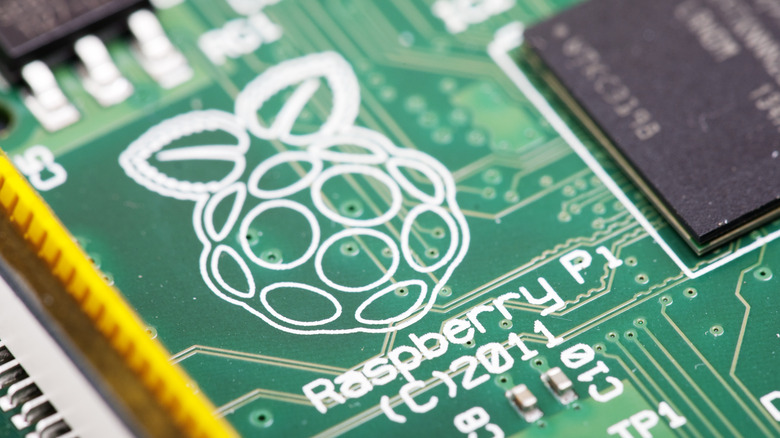Can A Raspberry Pi Really Replace Your Desktop Computer?
A Raspberry Pi can be many things, including a desktop computer. While you're probably not meant to purchase one with the intention of it replacing your main PC, that doesn't mean people don't try. A Raspberry Pi can certainly make for a decent computer, and it can even browse the web or be used to watch YouTube. However, there are going to be some very big things that hold it back from outright replacing the need for a desktop.
For starters, anybody who is using their computer for anything more than web browsing will run into problems. A Raspberry Pi will never play modern games, but it can work very well as a retro game emulator. Even doing things like watching YouTube has people reporting problems. To get less stutter, you'll want to get as much RAM as you can for your Pi, but the Pi 4 maxes out at eight GB. That's serviceable, but you will run into issues quickly if you have a lot of tabs open. It's not surprising to see people opt for 16 GB or even 32 GB in their PCs nowadays. Ultimately, whether you're able to replace your desktop or not comes down to what you're expecting out of your computer. The mileage varies by person, but the scale tips more in the direction of a Pi not being a viable replacement.
Keep your expectations in check
If you understand the many limitations of a Raspberry Pi, you can get away with using it as a desktop computer. Having a few tabs open on Firefox or Chrome should feel just fine, and you might not even realize you're on a Pi if that's all you're doing. It could even feel comparable to something like a Chromebook as those are mainly used for word processing and web browsing. Running any sort of intensive program will be a nightmare on either device.
A Raspberry Pi is much more suited for things like a home server or a gaming emulator versus a full-blown desktop replacement. The downsides are just too great considering you'll need to buy an SD card for storage, dig up an extra mouse and keyboard, and figure out what operating system to use. Ubuntu or the Raspberry Pi OS will work fine, but you'll run into compatibility issues with many programs that you just won't see with a Windows or Mac device. All that being said, if you're building a Pi-powered desktop as a side project, then go right ahead because finding solutions to problems can be quite fun.

